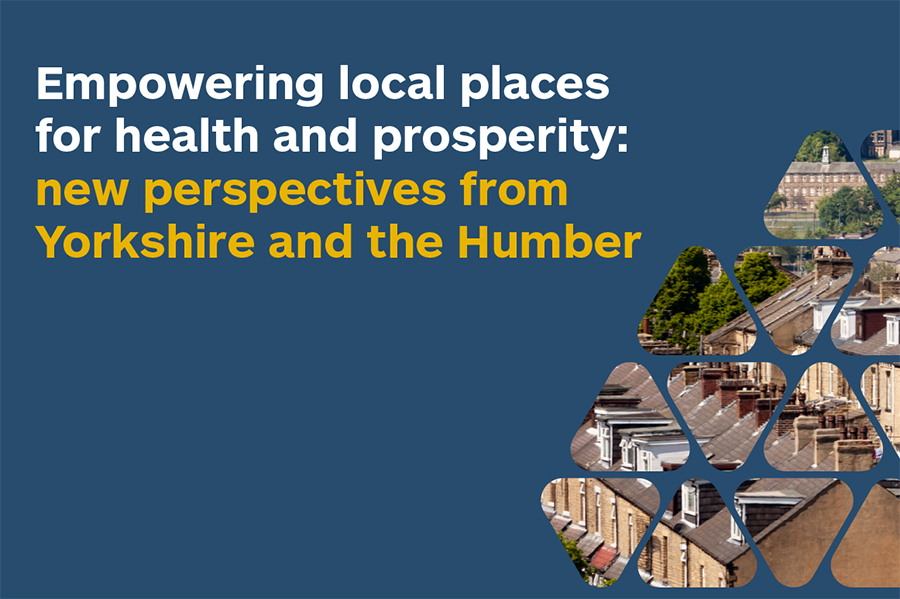Devolving health powers and investment to local areas is key to tackling health and economic inequalities between Yorkshire and other parts of the UK, according to the findings of a new white paper.
The paper was delivered by Health Innovation Yorkshire & Humber, Yorkshire Universities and the NHS Confederation and lists 10 key recommendations to narrow the widening health and economic gap.
Chief among those recommendations is that central government should devolve more health powers to local places so that solutions can be found that meet the needs of local people and communities.
Notably, the report highlights the Yorkshire and Humber Policy Engagement and Research Network (Y-PERN) as an example of a Yorkshire-wide collaboration that is sharing evidence and best practice.
The report reads: “A cornerstone of Y-PERN … is bringing evidence-based rationale to influence policymaking for excluded and marginalised communities. The significance of this for health in the region is that it can act as an exemplar for how the extensive research facilities of Yorkshire Universities can be utilised by policymakers to improve health outcomes based on a proper understanding of the challenges faced, robust evidence and insights.”
A ’perfect test bed’ for innovation
The latest white paper, entitled Empowering Local Places for Health and Prosperity draws on data showing that health and economic inequalities across Yorkshire and Humber – which has the third lowest life expectancy in England – have been exacerbated by the COVID-19 pandemic.
The white paper argues that meaningful devolution that allows local leaders to lead is the best way to tackle health inequalities and economic inactivity that currently cost the UK £180bn a year.
The paper highlights that Yorkshire’s diverse geography, economy and population and strong partnerships between public bodies, the health sector, universities, businesses, and others make it the “perfect test bed for piloting new approaches and innovations” that could be replicated and scaled up elsewhere in the country.
It also identifies the important role of universities and businesses in supporting health and economic prosperity as part of broad-based local partnerships.
As a region home to 37,000 students studying medicine or health-related subjects, Yorkshire’s universities are well-placed to meet ambitious targets set out in the NHS’s Long-Term Workforce Plan to double the number of medical school places in England and increasing adult nursing training places by 92%.
With NHS vacancies – particularly nursing jobs – at an all-time high, one of the white paper’s top recommendations is for health service leaders and the government to work more closely with universities to remove barriers to student recruitment in health-related subjects.
Professor Karen Bryan OBE, Chair of Yorkshire Universities, comments:
“Action to deliver on the NHS Workforce Plan ambitions has been slow to materialise, which is concerning given the scale of the workforce crisis the NHS is facing. I’m pleased that this white paper recognises the crucial role of universities in meeting the targets in the Workforce Plan, including boosting student recruitment, providing capital investment to improve training capacity, extending and diversifying placements and practice-learning, and tackling health student and early-career attrition.
“It also reinforces the importance of collaborative initiatives such our Yorkshire Policy Engagement and Research Network (Y-PERN), which unites our academics with policymakers and communities to ensure they are armed with evidence about what the economy and their communities really need to thrive.”
Read the full report here: https://www.yhealth4growth.info/wp-content/uploads/sites/2/2024/02/Empowering_local_places.pdf



